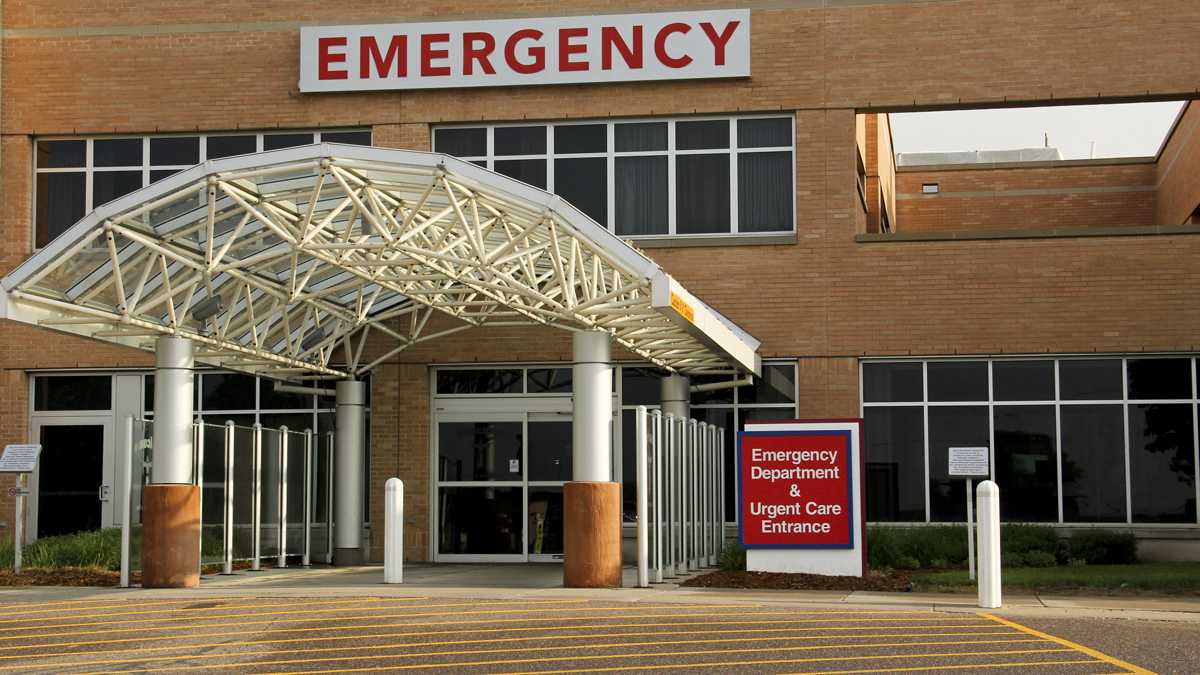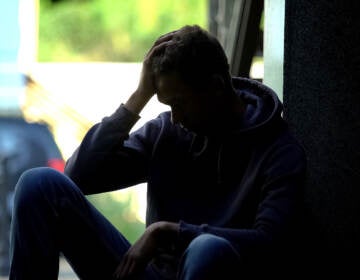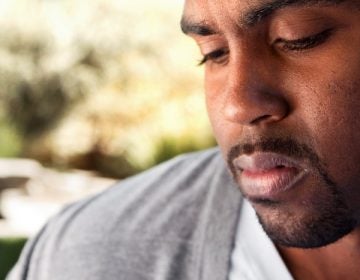Penn study finds most black men with trauma aren’t getting treatment
Among black men in Philadelphia who’ve suffered traumatic injuries, most psychological symptoms are not treated.

(ShutterStock)
During a typical visit to the emergency room, most patients encounter doctors who will do everything they can to address physical symptoms as quickly as possible. But gunshot wounds and other injuries often come with psychological health issues, too, such as anxiety, post-traumatic stress disorder, or anger that’s hard to manage.
And those can be difficult to address, especially if you’re a black man living in Philadelphia.
A new study from the University of Pennsylvania’s School of Nursing found that, among black men in Philadelphia who’ve suffered traumatic injuries, most psychological symptoms are not treated.
Researchers interviewed 38 black men who were part of a larger study with 550 participants related to trauma in Philadelphia. All of the men lived in the Philadelphia area and had been hospitalized for an acute traumatic injury — gunshot wounds, stabbing, or injury from being hit by a car. They ranged in age from 18 to 67; 60 percent of them made less than $20,000 a year.
Most of the men interviewed in the study, published in the journal “Ethnicity and Health,” experienced symptoms of trauma — 68 percent said they experienced depression three months after their injuries occurred, and just over half suffered PTSD.
“We would have men that would say, ‘I can’t sleep at night, I go to sleep and I just keep remembering what happened to me’ or ‘Sometimes I felt suicidal,’ ” said Terry Richmond, Penn Nursing’s associate dean for research and innovation who led the study.
Still, most of the men were not seeking mental health treatment. Only 30 percent had tried to connect with any sort of social service. The rest had either considered it, but not done so, or had not considered reaching out.
Researchers found that many men viewed treatment as too expensive or inaccessible. But there are other factors at play, too. Many respondents told researchers that their culture viewed therapy as being for the weak — and that they felt like they were being judged by their communities and mental health professionals, which prevented them from seeking help.
“It really was a combination of being socialized that black men are masculine, and psychological symptoms don’t fit within that view of of masculinity, coupled with the fear that they would be judged by others as being crazy or weak,” Richmond said.
Researchers found that the stigma attached to seeking treatment also stems from the fact that many doctors don’t warn trauma victims that psychological symptoms might be associated with their physical injuries.
“We don’t really prepare them that when you go home, you may have symptoms that are concerning to you,” Richmond said. “You may feel sad, you may keep remembering the injury, you may, at all costs, avoid things that remind you of the injury.”
Healing Hurt People
There are some efforts underway in Philadelphia to address these issues.
Since 2007, Healing Hurt People has been working with patients who’ve been victims of intentional violence, such as shootings, stabbings, and assaults. A project of Drexel University’s Center for Nonviolence and Social Justice, the group is run by Drs. John Rich and Theodore Corbin. Both African-American, the two men recognized that the experiences of young, injured black men in Philadelphia were not being taken seriously in emergency departments.
Despite experiencing high levels of PTSD, “they’re often thought of as being responsible for their own injuries,” said Rich, who also worked on the study with Richmond.
He described this as an implicit bias against young, black men in the medical system, causing them to be sent home without arrangements for follow-up care. National studies have shown that this demographic is already at a heightened risk for mental health issues due to societal factors like discrimination and unemployment.
Even if the physical injury is healed, Rich said the symptoms of trauma, if untreated, can have serious consequences.
“Many of these young people are unable to function in school, because they have these overwhelming symptoms of trauma,” he said. “They may have symptoms of avoidance, which make it difficult for them to leave the house, and so they may not get follow-up medical care. They may not look for jobs or engage productively in the community.”
Healing Hurt People aims to link trauma victims with social workers who can help connect them to services from switching schools, to getting financial assistance if they are unable to work because of pain or conditions like PTSD.
Related studies have found that untreated symptoms of trauma can make it more likely for subsequent injuries. Nationally, almost half of those who are severely wounded will be injured again within five years, and 20 percent will die.
“If I’m self-medicating my psychological symptoms because I’m not getting the appropriate help, and I’m doing that with illicit substances, then that places me at risk for both other injuries, or for risky situations,” said Richmond.
Richmond agreed that a trauma-informed approach such as Healing Hurting People’s is the way forward.
“Instead of saying, ‘What’s wrong with you,’ we should be asking, ‘What happened to you?’ ”
WHYY is your source for fact-based, in-depth journalism and information. As a nonprofit organization, we rely on financial support from readers like you. Please give today.





